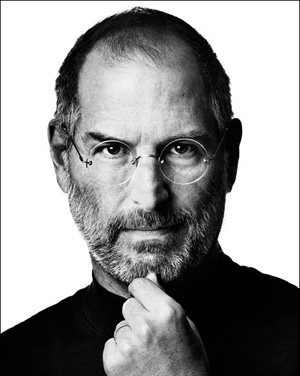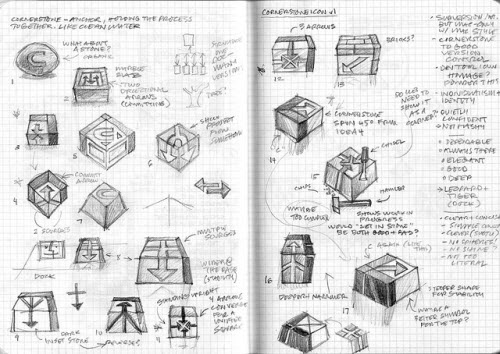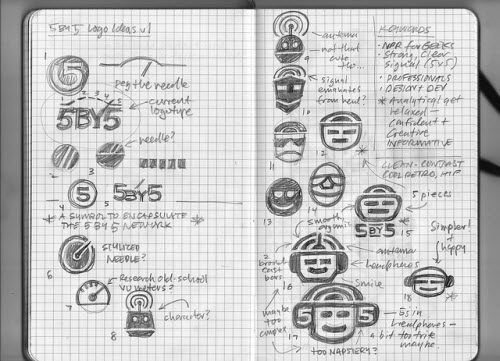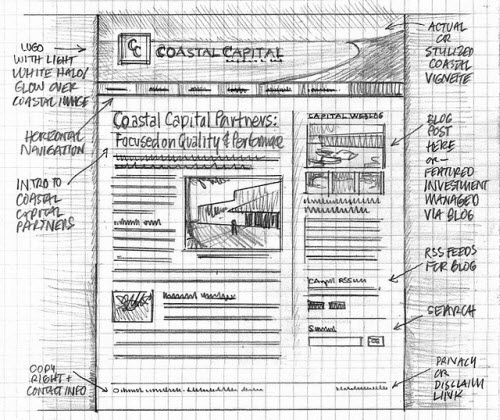Now, having finished the 600-plus page Steve Jobs biography by Walter Isaacson, I think I finally understand Steve Jobs. Like most of us, his personality had many sides. He could be aloof, super-intense, odd, gross, passionate, creative, driven, unfair, conciliatory and deeply introspective. He lived a rich and unique life.
Here is the highlighted interesting, surprising and relevant passages.
Don’t Wait
When the young Steve Jobs wanted to build something and needed a piece of equipment, he went straight to the source.
“He began by recalling that he had wanted to build a frequency counter when he was twelve, and he was able to look up Bill Hewlett, the founder of HP, in the phone book and call him to get parts.”
Make Your Own Reality
Steve Jobs learned early that when you don’t like how things are in your life or in your world, change them, either through action or sheer force of will.
“As Hoffman later lamented, “The reality distortion field can serve as a spur, but then reality itself hits.” – Joanna Hoffman, part of Apple’s early Macintosh team.
“I didn’t want to be a father, so I wasn’t,” Jobs later said, with only a touch of remorse in his voice.
Control Everything You Can
Steve Jobs was, to a certain degree, a hippie. However, unlike most free spirits of the 1960s-to-1970s love-in era, Jobs was a detail-oriented control freak.
“He wants to control his environment, and he sees the product as an extension of himself.”
Own Your Mistakes
Jobs could be harsh and even thoughtless. Perhaps nowhere was that more in evidence than with his first daughter. Still, as Jobs grew older and began to face mortality, he more readily admitted his mistakes.
“I’ve done a lot of things I’m not proud of, such as getting my girlfriend pregnant when I was twenty-three and the way I handled that,” Jobs said.”
Know Yourself
While not always aware of how those around him were reacting to his appearance or demeanor, Jobs had no illusions about his own formidable intellectual skills.
“Then a more disconcerting discovery began to dawn on him: He was smarter than his parents.”
Leave the Door Open for the Fantastic
Jobs was a seeker, pursuing spiritual enlightenment and body purification throughout his life. He wasn’t a particularly religious person, but did not dismiss the existence or something beyond our earth-bound realm.
“I think different religions are different doors to the same house. Sometimes I think the house exists, and sometimes I don’t. It’s the great mystery.” — Steve Jobs
Don’t Hold Back
Apple’s founder was famous for his outbursts and sometimes over-emotional responses. In product development, things were often amazing or sh_t.
“He was an enlightened being who was cruel,” she recalled. “That’s a strange combination.”– former girlfriend and mother of Jobs’ first daughter, Chrisann Brennan
Surround Yourself with Brilliance
Whether he was willing to admit it or not, Steve Jobs could not do everything. Yes, he could have a huge impact on every product and marketing campaign, but he also knew that there were others in the world with skills he did not possess. Jobs’ early partnership with Apple co-founder Steve Wozniak perfectly illustrated this fact. His early success with Wozniak provided the template for future collaborations.
“After a couple of months he was ready to test it. ‘I typed a few keys on the keyboard and I was shocked! The letters were displayed on the screen.’ It was Sunday, June 29, 1975, a milestone for the personal computer. “It was the first time in history,” Wozniak later said, “anyone had typed a character on a keyboard and seen it show up on their own computer’s screen right in front of them.”
Build a Team of A Players
Far too often, companies and managers settle for average employees. Steve Jobs recognized talent and decided that any conflict that might arise from a company full of “A”-level players would be counterbalanced by awesome output. He may have been right.
“For most things in life, the range between best and average is 30% or so. The best airplane flight, the best meal, they may be 30% better than your average one. What I saw with Woz was somebody who was fifty times better than the average engineer. He could have meetings in his head. The Mac team was an attempt to build a whole team like that, A players. People said they wouldn’t get along, they’d hate working with each other. But I realized that A players like to work with A players, they just didn’t like working with C players.”– Steve Jobs
“I’ve learned over the years that when you have really good people you don’t have to baby them,” Jobs later explained. “By expecting them to do great things, you can get them to do great things.”
Be Yourself
Steve Jobs was often so busy being himself that he had no idea how people saw him, especially in his early, dirty-hippie days.
“At meetings we had to look at his dirty feet. Sometimes, to relieve stress, he would soak his feet in the toilet, a practice that was not as soothing for his colleagues.”—Mike Markkula, Apple’s first chairman.
Be Persuasive
While it’s true that early Steve Jobs was a somewhat smelly and unpleasant person to be around, this same Steve Jobs also trained himself to stare without blinking for long periods of time and found that he could persuade people to do the seemingly impossible.
“If it could save a person’s life, would you find a way to shave ten seconds off the boot time?” he asked. Kenyon allowed that he probably could. Jobs went to a whiteboard and showed that if there were five million people using the Mac, and it took ten seconds extra to turn it on every day, that added up to three hundred million or so hours per year that people would save, which was the equivalent of at least one hundred lifetimes saved per year.”
Show Others the Way
Jobs wasn’t truly a programmer or technologist, certainly not in the way that Microsoft founder Bill Gates is, yet he had an intuitive understanding for technology and design that ended up altering the world’s expectations for computers and, more importantly, consumer electronics.
“To be honest, we didn’t know what it meant for a computer to be ‘friendly’ until Steve told us.” — Terry Oyama, part of the early Macintosh design team.
Trust Your Instincts
I have, in my own career, navigated by gut on more than one occasion. Steve Jobs, though, had a deep and abiding belief in his own tastes and believed with utter certainty that if he liked something, the public would as well. He was almost invariably right.
“Did Alexander Graham Bell do any market research before he invented the telephone?” — Steve Jobs
Take Risks
Throughout his career, Steve Jobs took chances, first with the launch of Apple, then in walking away from it and then returning in 1997. In an era when most companies were figuring out ways to diversify, Apple — under Job’s leadership — shed businesses and products, and focused on relatively few areas. He was also willing to steer the entire Apple ship (or at least some aspects of it) in a single direction if he thought it would generate future success.
“One of Jobs’ management philosophies was that it is crucial, every now and then, to roll the dice and ‘bet the company’ on some new idea or technology.”
“I had this crazy idea that we could sell just as many Macs by advertising the iPod. In addition, the iPod would position Apple as evoking innovation and youth. So I moved $75 million of advertising money to the iPod, even though the category didn’t justify one hundredth of that. That meant that we completely dominated the market for music players. We outspent everybody by a factor of about a hundred.” — Steve Jobs.
Follow Great with Great
In everything from products to movies (under Pixar), Steve Jobs sought to create great follow-ups. He wasn’t so successful in the early part of his career (see Lisa), but his third acts to Pixar and Apple proved he had the sequel touch.
“There’s a classic thing in business, which is the second-product syndrome,” Jobs later said. It comes from not understanding what made your first product so successful. “I lived through that at Apple. My feeling was, if we got through our second film, we’d make it.”
Make Tough Decisions
Good managers and leaders are willing to do hard work and, often, make unpopular decisions. Jobs apparently had little concern about being liked and therefore was well-equipped to make tough choices.
“The most visible decision he made was to kill, once and for all, the Newton, the personal digital assistant with the almost-good handwriting-recognition system.”
Presentation Can Make a World of Difference
The Apple founder hated PowerPoint presentations, but perhaps somewhat uncharacteristically, believed elegant product presentation was critical.
“Packaging can be theater, it can create a story.” — Jony Ive, Apple designer.
Find a Way to Balance Your Intensity
It’s unclear if Steve Jobs ever truly mellowed, but he did learn that a buffer between him and the rest of Apple could be useful.
“In a company that was led by a CEO prone to tantrums and withering blasts, Cook commanded situations with a calm demeanor, a soothing Alabama accent, and silent stares.”
Live for Today
Even as Steve Jobs struggled with cancer, he rarely slowed down. If anything, the disease helped him focus his efforts and pursue some of his grandest dreams.
“Remembering that I’ll be dead soon is the most important tool I’ve ever encountered to help me make the big choices in life.” — Steve Jobs
“Remembering that you are going to die is the best way I know to avoid the trap of thinking you have something to lose. You are already naked. There is no reason not to follow your heart.” — Steve Jobs
Share Your Wisdom
Steve Jobs was not a philanthropic soul. He had a passion for products and success, but it wasn’t until he became quite ill that he started reaching out and offering his wisdom to others in the tech community.
“I will continue to do that with people like Mark Zuckerberg too. That’s how I’m going to spend part of the time I have left. I can help the next generation remember the lineage of great companies here and how to continue the tradition. The Valley has been very supportive of me. I should do my best to repay.” — Steve Jobs
by Lance Ulanoff
















